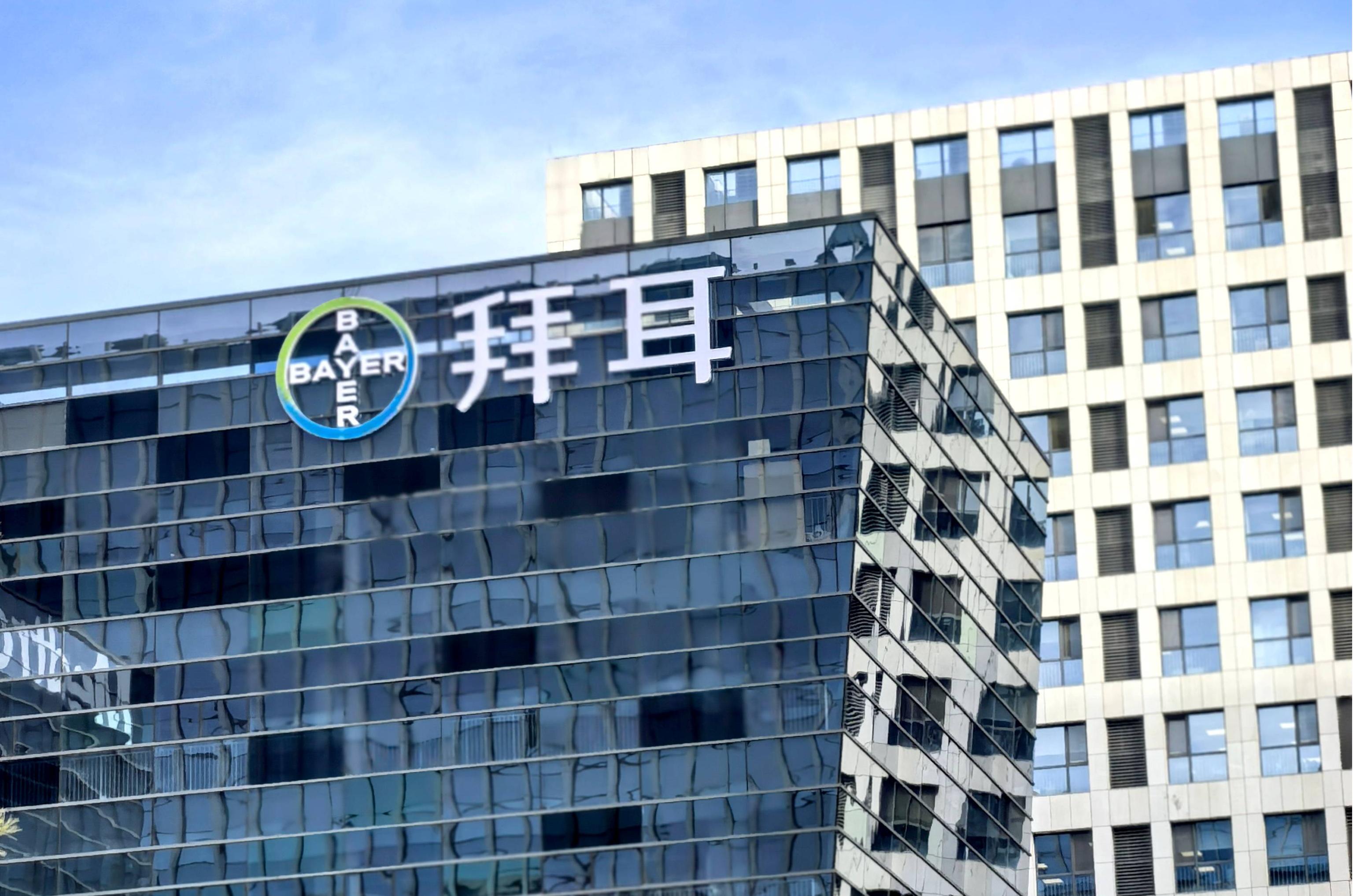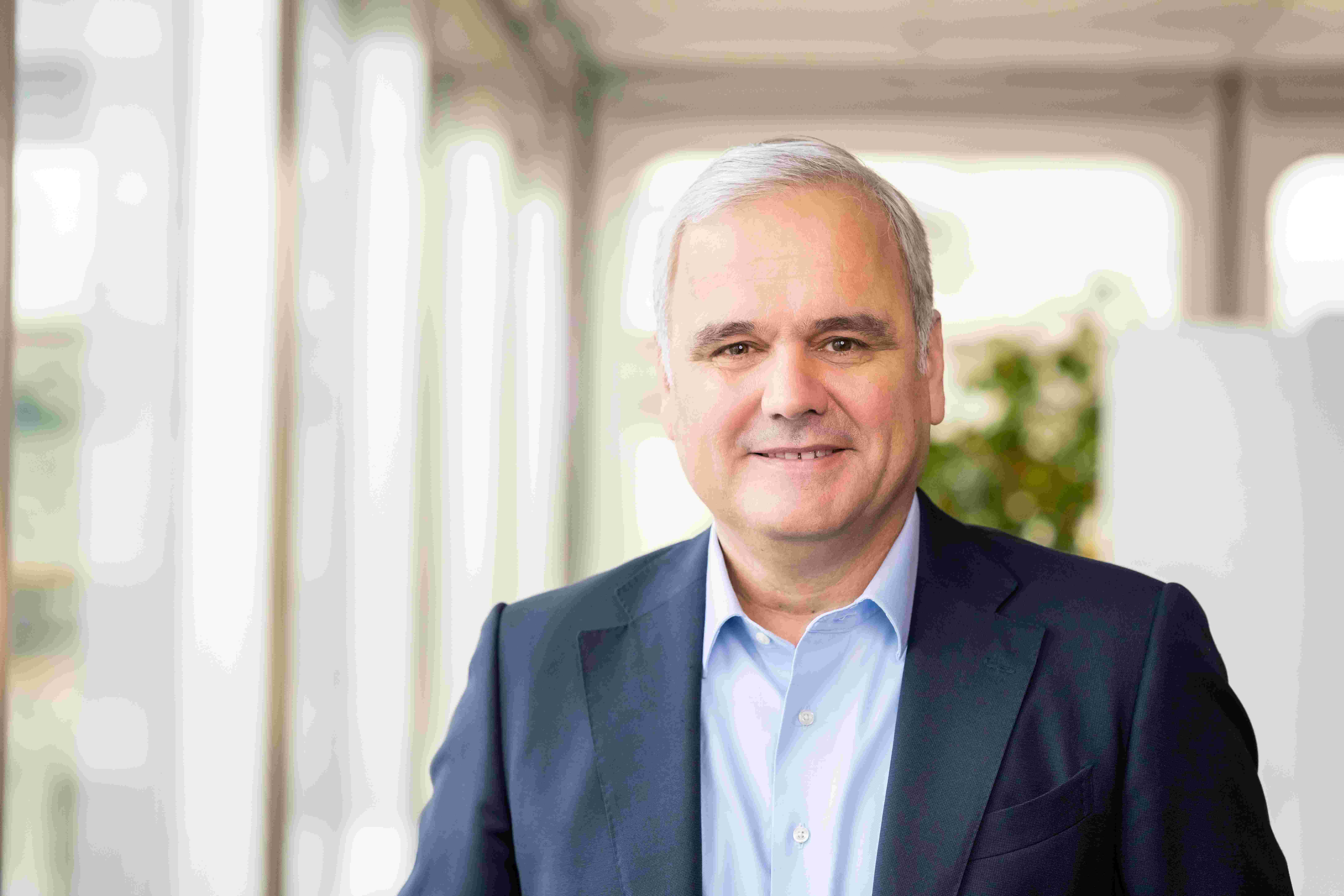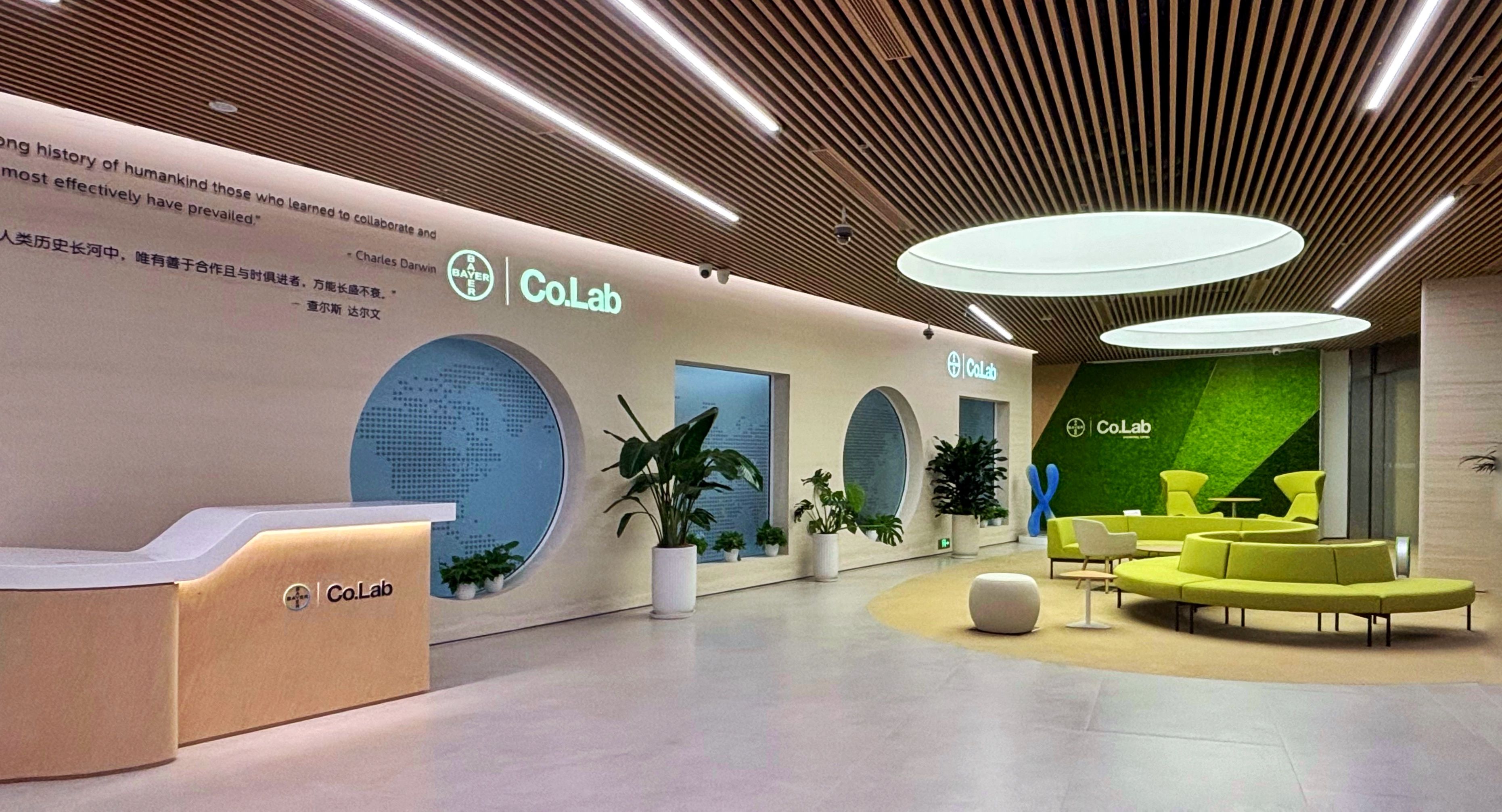 Bayer Pharmaceuticals Prepares for a Landmark Year with Key Product Launches, Strategic Focus on China Amid Challenges
Bayer Pharmaceuticals Prepares for a Landmark Year with Key Product Launches, Strategic Focus on China Amid Challenges(Yicai) April 2 -- Bayer Pharmaceuticals is poised for a transformative year as it advances multiple blockbuster launches globally, with particular focus on China, while facing the challenge of losing exclusivity for some of its blockbuster products.
"2025 is a landmark launch year for Bayer Pharmaceuticals, and we are pulling out all stops to drive the power of our pipeline," said Stefan Oelrich, Member of the Board of Management, Bayer AG, and President of Bayer's Pharmaceuticals Division at the annual Pharma Media Day yesterday. "Our growth strategy is on track and delivering significant value. This year, we are bringing a number of groundbreaking products with blockbuster potential to market."

Bayer's pharmaceuticals division posted a 3.3 percent increase in sales to EUR18.13 billion last year, despite the loss of exclusivity for Xarelto in key markets, according to the company's annual report, against the backdrop of relative loss of exclusivity of some key therapies.
"We're seeing Xarelto fall, but we know the growth will continue and the fall will stop. We've been growing much faster with our new products. All of them broadcast the potential that would offset what we would lose on the other side with Xarelto," said Oelrich. "We're at a turning point right now in 2025 and 2026 in our pharmaceutical business, we expect to show strong growth again for our global business from 2027."
Leading this growth surge are oncology treatment Nubeqa and kidney disease medication Kerendia, which registered impressive growth rates of 78.2 percent and 73.9 percent to EUR1.52 billion and EUR 463 million respectively.
"We're particularly happy that our fastest growing product is also one that addresses a tremendous unmet need in China," said Oelrich about Nubeqa, which targets prostate cancer, the fifth leading cause of cancer death in men worldwide. According to the latest malignant cancer burden data released by China's National Cancer Center in the Journal of the National Cancer Center (JNCC), the number of prostate cancer cases in China is 134,200 in 2022.
Meanwhile, Kerendia is being positioned as a next-generation growth engine, particularly in China. There are about 140 million Chinese that live with diabetes and probably a big number of undiagnosed, according to the "Guidelines for the Prevention and Treatment of Diabetes in China (2024 Edition)". As there is high likelihood that patients diagnosed with diabetes will develop kidney disease, especially if they get treated late in diabetes, "Kerendia is an incredible advance for patients that have poor kidney function with their diabetes," noted Oelrich.
What makes Kerendia particularly promising is its unique mechanism as a non-steroidal mineralocorticoid receptor antagonist, offering a better side effect profile for patients with diabetic kidney disease or heart failure. "I believe that it can truly become a standard of care, not only in the kidney, but also treating people with certain cardiomyopathies," Oelrich said.
Bayer is pursuing an ambitious launch strategy across its portfolio. "We're really gearing up for a total of six parallel blockbuster launch opportunities," Oelrich explained. Besides Nubeqa and Kerendia, these also include elinzanetant for menopausal symptoms, high-dose Eylea for eye conditions, Beyonttra for cardiomyopathy, and the anticipated readout for asundexian, which aims to prevent strokes in hypertension patients. "We're very, very busy and we try, with the exception of asundexian, to bring all of these innovations, of course, to China."
Strategic investments in R&D and platform companies in recent years are further strengthening Bayer's pipeline. With Vividion's acquisition of Tavros Therapeutics, Bayer continues to leverage its chemoproteomics technology platform to unlock traditionally undruggable targets with precision small-molecule therapeutics. Bayer has initiated Phase I trials for the treatment of solid tumors and solid and hematologic malignancies, alongside an IND-enabling program for RAS-driven cancers.
China: From Market Opportunity to Innovation Hub
With more than 140 years of presence in China, Bayer has strategically positioned the country as a cornerstone of its global operations. "China is clearly our second largest market in the world, after the US, and of high strategic importance," Oelrich stated.
"I'm encouraged by China's increasingly open policies regarding cell and gene therapy solutions from international companies, which creates a favorable environment for innovation," Oelrich said. The aging population in China presents substantial opportunities for Bayer's innovative therapies, particularly for neurodegenerative diseases like Parkinson's. Bayer has been invited in Beijing and Shanghai to take part in the pilot program for stem cell and gene therapy that allows foreign businesses to participate in select free trade zones.
In cell and gene therapy, Bayer is making notable progress, particularly in Parkinson's disease treatments. One of the candidates, from Bayer’s subsidiary BlueRock that focus on cell therapy, is advancing directly to Phase III clinical development following positive Phase I data, having received Regenerative Medicine Advanced Therapy (RMAT) designation from the FDA.
Bayer also benefits from strong partnerships with China's innovation ecosystem. AskBio, a company acquired by Bayer that specializes in gene therapy using AAV vectors, was co-founded by Chinese scientist Dr. Xiao Xiao, who now operates his own company Belief BioMed in China. "We're very happy to work closely with Dr. Xiao Xiao and his company developing cell therapy options for high-need patients in China," said Oelrich.
"We are seeing how China is becoming an innovator in the biotech space. And I think we're doing this just by creating our own sort of innovation hubs in China and participate actively in this innovative ecosystem," said Stefan.

A key part of Bayer's innovation strategy in China is the opening of its Co.Lab facility in Shanghai in September 2024, looking for new opportunities as well as incubating early biotech startups in cutting-edge areas such as cell and gene therapies, oncology and new technology. By December, the Co.Lab had welcomed its first three resident companies, including biotech firms EPI Genic, Shanghai Immunocan Biotech and AccurEdit Therapeutics.
"We see China playing at the same level of scientific capabilities and also of scientific rigor and scientific innovation with all of these players [in Boston, Berlin and Kobe]," Oelrich remarked. "Biotech is one of the most vibrant areas of Chinese innovation. We're always impressed to see how much progress China is making in these areas."
This commitment to China's innovation ecosystem extends to commercial partnerships. Last month, Bayer announced a global license agreement with Suzhou Puhe BioPharma Co., Ltd. for an oral, small molecule PRMT5 inhibitor targeting MTAP-deleted tumors. "We're strengthening our global pipeline with Chinese collaborations," Oelrich said.
Embracing AI to Accelerate Innovation
Bayer is also leveraging artificial intelligence (AI) to boost its research and development productivity. "We have internally set ourselves the goal that we want to boost R&D productivity by 40% by 2030, largely with the help of AI," Oelrich revealed. AI will enable the firm to bring medicine to patients faster, reduce costs per medicine, and allow the company to have "more shots on goal" in the development process, he stated.
Bayer's AI Innovation Platform (AIIP), powered by Google Cloud technology, streamlines the development of AI-driven medical imaging software. The platform provides healthcare organizations and startups with secure development environments, advanced data processing tools, and AI-assisted regulatory document creation.
This digital transformation extends to commercialization efforts. "We have the Bayer E-Town Open Innovation Center platform showcasing local innovations such as the Women's Health Campus and Digital Clinical Service Center, which is an AI-powered data-driven operation improving healthcare program engagement in China," Oelrich explained.
With a strong pipeline and a strategic focus on emerging markets like China, Bayer is well-positioned for long-term growth. As the company continues to innovate in therapeutic areas such as oncology, gene therapy, and technologies like AI, it remains committed to improving patient outcomes worldwide. “We're strong advocates of free trade. And we hope that free trade will win, because I think that allows for more healthy competition.”